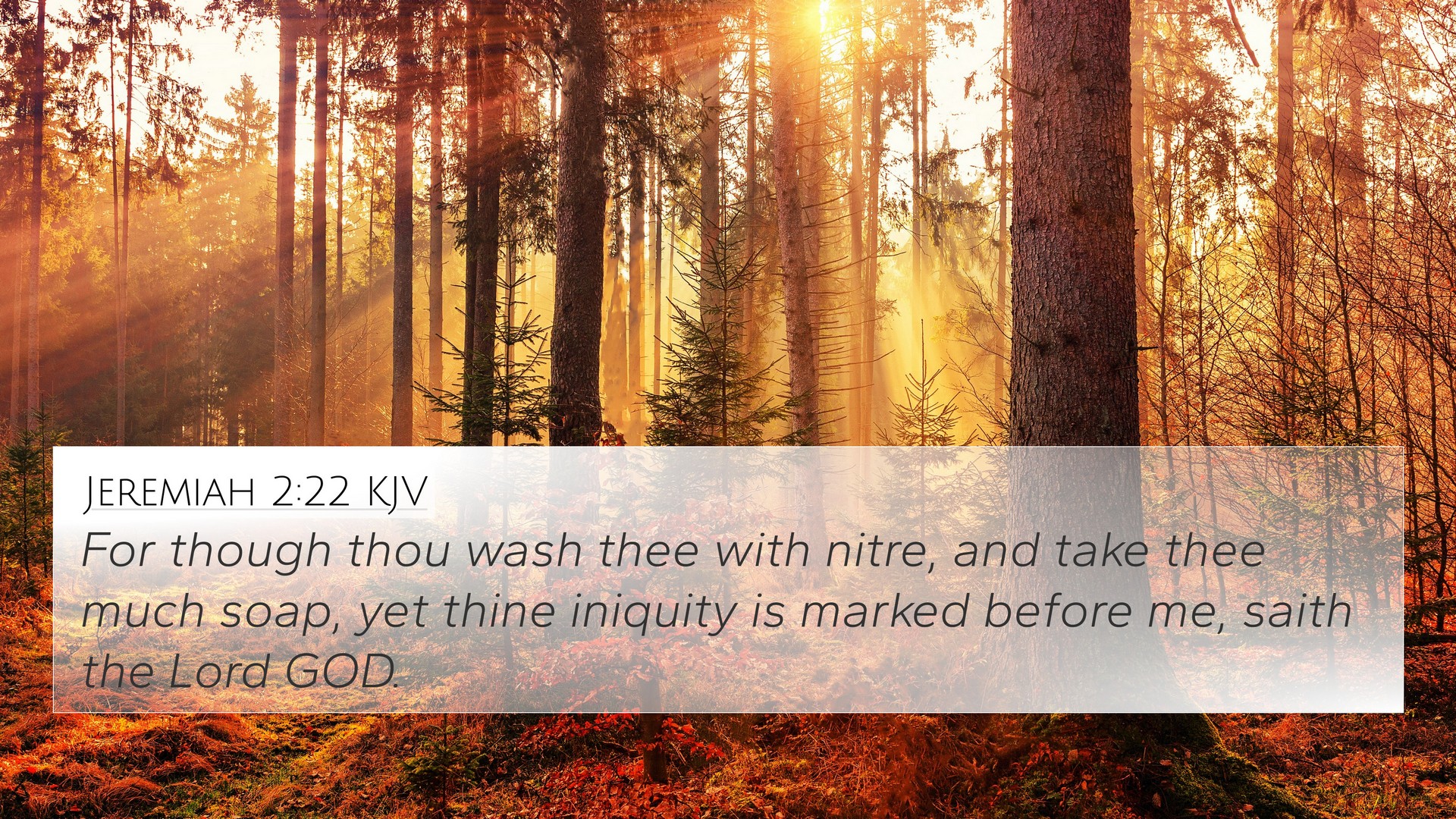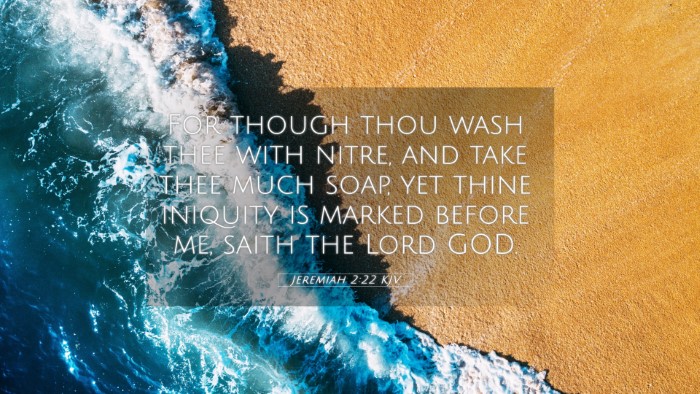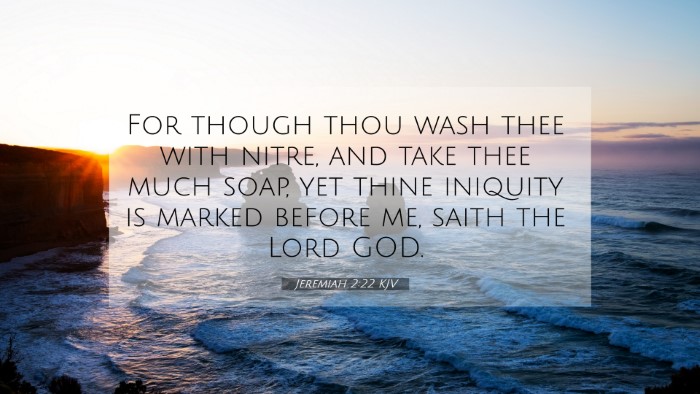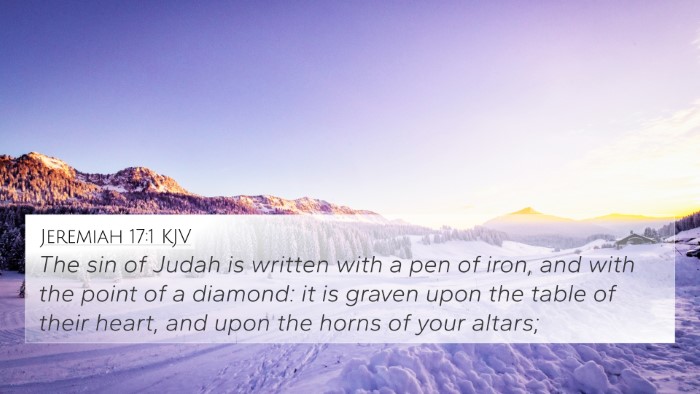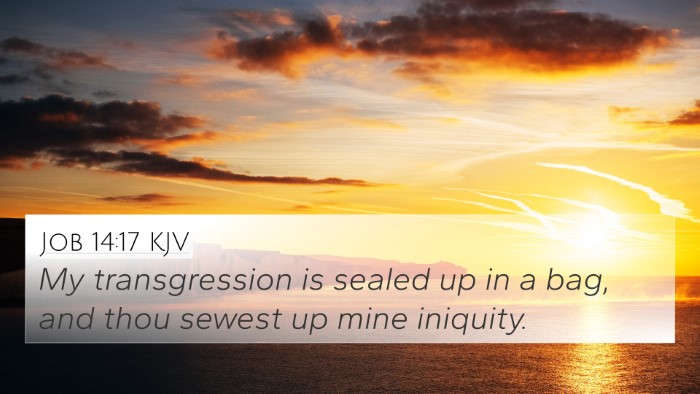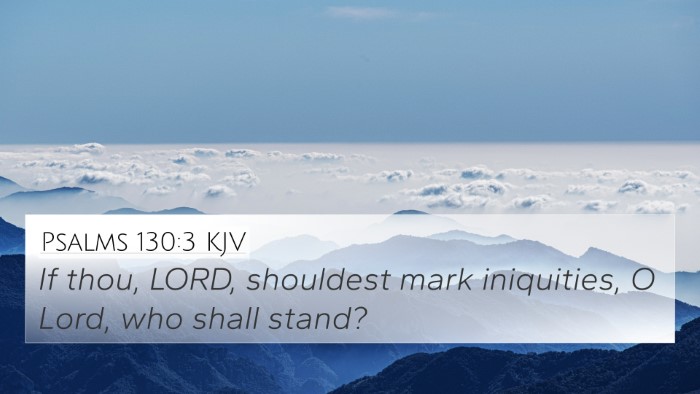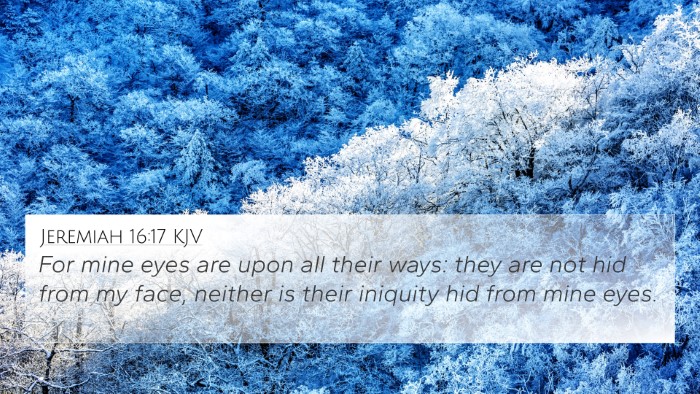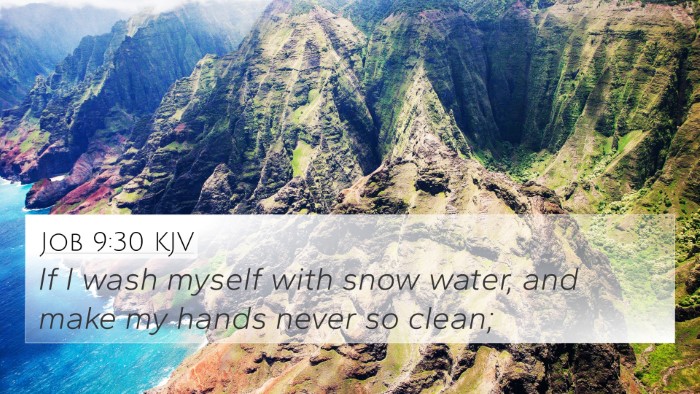Understanding Jeremiah 2:22
Jeremiah 2:22 states: "For though you wash yourself with lye and use much soap, yet your iniquity is marked before me, says the Lord God." This verse encapsulates the idea that outward cleanliness or efforts to cover sin are futile when the heart is not cleansed.
Summary of the Verse
In this verse, God expresses that the people of Judah cannot erase their sins simply through ritualistic acts or outward appearances. The imagery of washing with lye and soap represents their attempts to purify themselves, yet their iniquities remain evident to God. This message underscores the futility of trying to cleanse oneself from sin without true repentance and internal change.
Commentary Insights
-
Matthew Henry's Commentary:
Henry emphasizes the seriousness of sin and the inadequacy of ritualistic cleansing. He points out that while the people may strive to make themselves outwardly clean, it is their internal heart condition that God is concerned about. True repentance, he asserts, is necessary for genuine cleansing from sin.
-
Albert Barnes's Notes:
Barnes highlights that mere washing cannot remove the stain of sin. He discusses the symbolic nature of soap and lye, which, despite their potency in cleaning physically, can't reach the deeper issues of the heart. The verse serves as a reminder of the inherent limitation of human efforts in achieving spiritual purity.
-
Adam Clarke's Commentary:
Clarke elaborates on the idea that God sees through all attempts at self-justification. His commentary suggests that the urgency of the message cannot be understated—God desires a genuine heart transformation rather than superficial actions. He also reiterates that simply going through the motions will not suffice.
Related Bible Cross-References
Jeremiah 2:22 resonates with various other biblical texts that illustrate similar themes of purity, repentance, and the futility of mere ritualism:
- Psalms 51:7: "Purge me with hyssop, and I shall be clean; wash me, and I shall be whiter than snow."
- Isaiah 1:16-17: "Wash yourselves; make yourselves clean; remove the evil of your doings from before my eyes; cease to do evil."
- Matthew 23:25-26: "Woe to you, scribes and Pharisees, hypocrites! For you clean the outside of the cup and the plate, but inside they are full of greed and self-indulgence."
- 1 John 1:9: "If we confess our sins, he is faithful and just to forgive us our sins and to cleanse us from all unrighteousness."
- Proverbs 20:9: "Who can say, 'I have made my heart pure; I am clean from my sin'?"
- Ezekiel 36:26: "And I will give you a new heart, and a new spirit I will put within you." - emphasizing the need for internal change.
- James 4:8: "Draw near to God, and he will draw near to you. Cleanse your hands, you sinners, and purify your hearts, you double-minded."
Thematic Connections
Jeremiah 2:22 connects to themes of:
- Divine judgment against empty rituals.
- The necessity of heart purity and true repentance.
- Understanding God’s perspective on sin and cleanliness.
Tools for Cross-Referencing
For those engaging deeply with the Scriptures, tools for cross-referencing such as a Bible concordance, Bible cross-reference guide, and Bible reference resources are invaluable. They aid believers in exploring the interconnections between verses, facilitating a richer understanding of biblical themes and messages.
Conclusion
In conclusion, Jeremiah 2:22 serves as a poignant reminder that spiritual cleansing cannot be achieved through mere outward acts. It urges believers to seek true repentance and transformation through God, linking it with many other significant biblical texts that resonate with the theme of inner purity and the dangers of hypocrisy.
